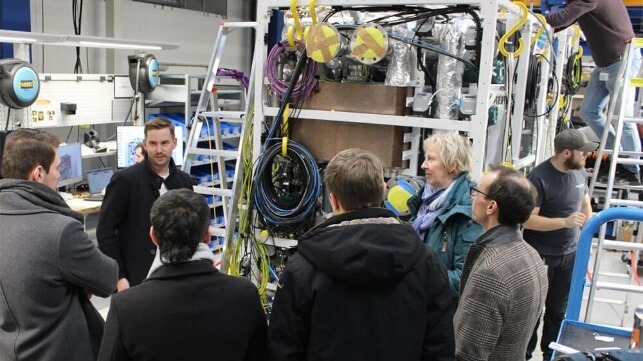Project to Develop High-Power Methanol Fuel Cells Targeting Cruise Ships

A new project uniting leaders in German industry and funded by the German government looks to develop a new generation of fuel cells using methanol to provide power for cruise ships. In the zero4cruise project, the German Aerospace Centre (DLR), will be working with Meyer Werft and the Freudenberg Fuel Cell e-Power Systems, to further develop PEM fuel cell technology for large-scale maritime systems.
The partners highlight that the project is designed to tackle one of the maritime industry’s most pressing challenges, the development of sustainable and low-emission energy solutions for cruise ships. Several smaller-scale projects are working on fuel cells for cruise ships and demonstration projects, but the challenge is the amount of power required to sustain the operations of a large cruise ship. The project looks to build on existing technology to create large-scale fuel cell stacks.
Meyer, which is well-known for its large cruise ship constructions including the first LNG dual-fuel ships, notes the focus of this project is on retrofitting existing ships. In addition to extending the lifespan of current ships, they note it can accelerate the decarbonization process in the cruise sector. They are particularly focusing on sustainable operations in ports and coastal areas.
A key focus of the project is the further development of PEM (Proton Exchange Membrane) fuel cell systems for large-scale maritime applications. They note by combining with methanol as an energy carrier, this technology offers great potential for supplying ships with electricity, heat, and cooling - efficiently and with low emissions.
The DLR Institute of Engineering Thermodynamics is responsible for the pre-development of fuel cell stacks on a scale relevant to the maritime market. This includes the consistent implementation of innovative technology approaches in the field of both LT-PEM and HT-PEM. The aim is to build prototype fuel cell stacks with 250 kW (LT-PEM) and 120 kW (HT-PEM), including performance verification in the laboratory.

that matters most
Get the latest maritime news delivered to your inbox daily.
The DLR Institute of Maritime Energy Systems is carrying out long-term tests on a 500 kW maritime fuel cell system. The aim is to simulate the real load cycles of a cruise ship to prove the long-term suitability of the system. In addition, newly developed LT and HT PEM fuel cell stacks will be tested in the Maritime Energy Laboratory to ensure development to the system level.
The German Federal Ministry of Economics and Technology funded the project with a total of €18.7 million ($193 million). The research project kicked off in January with a team meeting in Munich.
